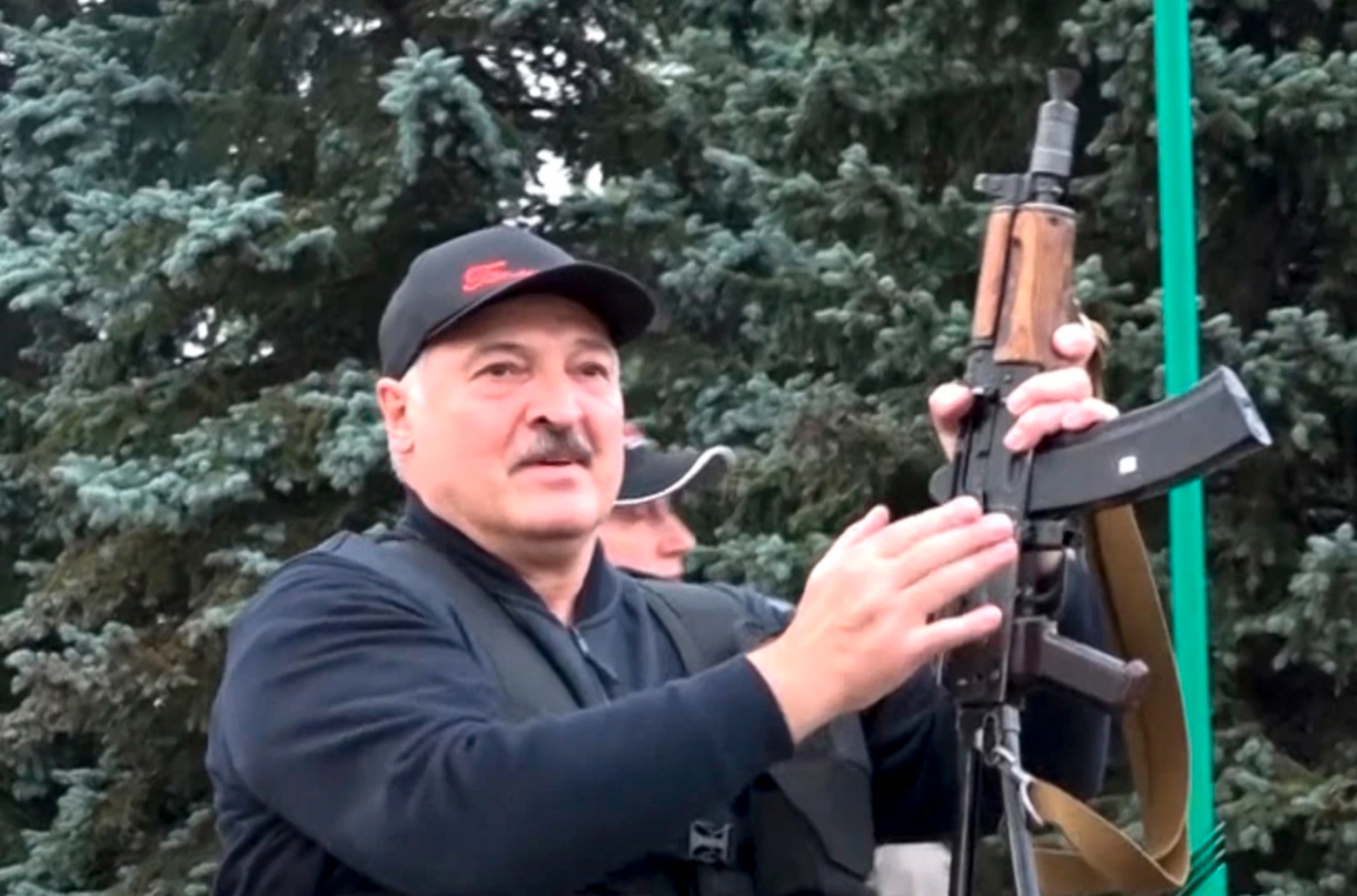
On 14 October, Alexander Lukashenko has announced a «state of heightened terrorist alert» in Belarus. Prior to Lukashenko’s statement, however, Belarusian Foreign Ministry head Vladimir Makei claimed that the republic had launched a «counter-terrorism operation.” Pavel Sapelko, a lawyer at the Viasna Human Rights Center, told The Insider that different data from top officials reflects the human rights situation in Belarus. Sapelko also explained what the introduction of the counter-terrorist operation regime in Belarus will mean for its citizens:
“This situation shows the state of human rights in Belarus. At first the minister says that the anti-terrorist operation regime is already in force on the territory of Belarus, then other agencies refute it, and it is impossible to verify neither the first or second statement. The procedure of the anti-terrorist operation is established by the law titled ‘On the fight against terrorism’, and this law has no information about the way this regime is declared and whether the citizens are notified [of it] at all. The law more or less describes who can start a counter-terrorist operation, who directs it and who can end it.
There’s also a list of restrictions imposed in the area that the operation covers. These rules on who can start [the operation] and who can lead it are described in rather vague terms, without being specific. For example, it says that the chairman of the State Security Committee has the right to establish the regime and then he can assign someone to lead the operation. The chairman can tell the Interior Ministry to move and give out direct commands. The president can also do the same. All in all, the provision is very vague, which leads to the situation we’re experiencing today.
The anti-terrorist operation regime will affect people who have no way of knowing when and on where their rights may be restricted. The law’s silent when it comes to that. The law describes the rights restricted and the duties imposed. The introduction of a counter-terrorist operation regime gives the right to use armed forces within the country and provides the ability to carry out inspections and searches without the approval of a prosecutor, body searches of citizens, and restrictions on entry and exit from the area where the operation is being carried out.
In principle, we’ve been living in this state since 2020, and we weren’t too surprised when it was announced [officially]. Without any decent justification, people's flats were broken into and searched – without any formalities or prior authorization from the authorities. Search warrants were mostly issued without due regard to the circumstances of the case – they were simply signed in stacks and handed out to the police or KGB.
The Minister of Foreign Affairs, who announced the state of anti-terrorist alert, talks both about political prisoners and the validity of their conviction, and some other things that don’t lie in the sphere of foreign policy. His task is to justify what’s going on inside Belarus on the international stage, and he’s trying to cope with that as much as he can. This isn’t very surprising for us, as Makei has sometimes been the source of a lot of news that we should have heard from the heads of the security services, the head of state and other agencies or courts.
It is likely that the authorities will now impose restrictions in the border areas or other areas. This would simply add to the vulgar legal basis for restricting people's rights and imposing additional obligations on them. The willingness to impose restrictions is evidenced by the movement of Russian troops and statements about threats to Belarus from Ukraine. It is also possible that Russian troops will merge with Belarusian troops under someone else's command.”
On 14 October, Belarusian Foreign Minister Vladimir Makei told state-owned newspaper Izvestia that an anti-terrorist operation was imposed in Belarus «amid reports of impending provocations by nearby states.” Lukashenko later cited different information – he officially stated that Belarus had introduced «a state of heightened terrorist alert.”
On 9 October, Belarus accused Ukraine of “preparing an attack” on the country. In March, Belarusian President Alexander Lukashenko also hinted at some intelligence at a meeting with Vladimir Putin. “And now I will show you where they were preparing the attack on Belarus from,» he said, and started showing something on the maps he had brought with him. In July, Lukashenko also accused the Ukrainian authorities of trying to launch a missile attack on Belarus.